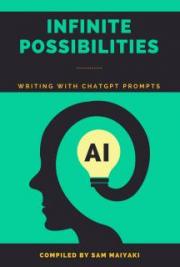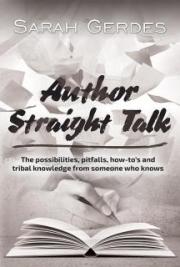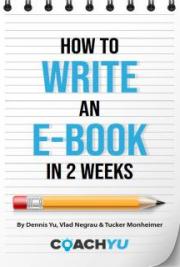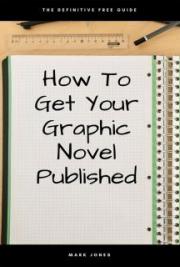What’s your style?
Just like every person is unique, every piece of writing is also unique, even though the same writer might have written it. That is because of our difference in outlook, beliefs, upbringing, education, culture and society. A writer passes these onto his writing.
Every writer has a unique style of writing; the only thing to know is what’s your style. For a beginner, it is difficult. I remember myself copying the style of the author I liked best when I had not discovered my own. For me it took lots of time, thinking and practicing, but you don’t have to follow the trial and error method.
What to do, what not to do
It doesn’t matter in which genre you are writing, what matters is how you are writing. For a novice writer, it is very natural to get influenced by the master’s of that genre. I subconsciously copied T.S. Eliot and stopped only when my professor pointed it out to me. What you need to do is to be proud. Yes, I mean it. Be proud of your writing, be sure of what you want to achieve through your writing, be confident that one day you will become one of the greatest writers in the world. Dream big. Don’t be awed by any writer, instead try to learn from their writings.
Shakespeare was a person just like you and me. If he could do it, so can you. Look at the writings of masters with a critical eye. Ask yourself: What makes them great? How do they develop their characters? How do they move the plot forward? How do they create suspense? Getting at the finer points of writing will make you a better writer.
Observe, observe and observe. There are some things, which no book can teach you about writing. That is good for you because that knowledge will be exclusive to you. That is what will make you stand apart from all the other writers. That will shape your style. Observe the scenery when you go out, observe the people, observe the vegetation, observe the way people talk. Try to see and hear all you can.
Personally, I stop reading fiction when I am writing a lengthy piece of fiction like a novel. It still influences my writing. There might be others like me. I remember another author who also stopped reading books when he was writing. (I can’t recall his name) If you are having the same problem, it is better to read books of genres in which you are not writing.
How to discover your style
Write everyday. You must have heard this advice a thousand times; that is because it works. Every piece you write improves your writing. Write five short stories and compare the first one with the last one. You will see the difference.
To discover your writing style, you will need to go deep inside you. Close your eyes and think: What do I want to write about? What matters to me the most? What do I want to share with others? Once you have got a theme, think of the characters in the same way. You now know how to create powerful characters. When you have made an outline of the characters, think of a plot. It is better to think about the plot keeping in mind the interests of the readers, so you can do it with your eyes open.
When you believe in your theme with conviction, when you can visualize your characters and know the twists and turns of your plot, you start writing. Try your best to express your (or your character’s) feelings to the reader. When you have finished writing the first draft, read it. You will be amazed to see that you have written the story in your own style.
What makes them different?
Below are three beginnings of novels of different genres. All three start with description.
Love story –
The Bridge Across Forever by Richard Bach
She’ll be here today. I looked down from the cockpit, down through wind and propeller-blast, down through half a mile of autumn to my rented hayfield, to the sugar-chip that was my FLY-$3-FLY sign tied to the open gate.
Both sides of the road around the sign were jammed with cars. There must have been sixty of them, and a crowd to match, come to see the flying. She could be there this moment, just arrived. I smiled at that. Could be!
Mystery -
The Golden Ball by Agatha Christie
Mrs. St. Vincent was adding up figures. Once or twice she sighed, and her hand stole to her aching forehead. She has always disliked arithmetic. It was unfortunate that nowadays her life should seem to be composed entirely of one particular kind of sum, the ceaseless adding together of small necessary items of expenditure making a total that never failed to surprise and alarm her.
Literary -
Dombey and Son by Charles Dickens
Dombey sat in the corner of the darkened room in the great armchair by the bedside, and Son lay tucked up warm in a little basket bedstead, carefully disposed on a low settee immediately in front of the fire and close to it, as if his constitution were analogous to that a muffin, and it was essential to toast him brown while he was very new.
All three beginning start with the description of a character. It may be the protagonist, we don’t know still. If you look casually, you will not find any marked difference in their writing. But if you look closely, you will see the difference in how they describe the characters.
In The Bridge Across Forever, the author has started the novel with a short sentence ‘She’ll be here today’. This tells the reader that the character, who is definitely a male, is thinking about a woman. Then the author introduces immediacy into the narrative by showing the character is flying an airplane and looking down at the crowd. The last few sentences again bring the focus on the woman. That’s an exciting start for a romance.
Agartha Christie has described the character of Mrs. Vincent in the first paragraph of her novel, The Golden Ball. Mrs. Vincent’s financial condition is forcing her to keep accounts, which she hates to do. She hates it so much that she has even got a headache because of it. Along with describing the character, the author has also specified her financial problems.
In Dombey and Son, Dickens starts by placing Mr. Dombey in the setting, which is suggestive of his personality. Mr. Dombey is sitting on a ‘great armchair’ in the ‘corner’ of the ‘darkened’ room. These words tell the reader something about the personality of Mr. Dombey. He is proud and an introvert. His son is compared to a muffin. The metaphor is for effect.
All are descriptions of characters, but they are described differently. Juxtaposing of one or two elements in descriptions is a mark of a good writer. These ‘elements’ are thoughts, setting, behavior, conversation with other characters, and situation. Follow your instincts to find out which combination of elements you prefer to use.
Bravo! You have read through. That shows how serious you are about writing. I hope you got some good insights into fiction writing from Begin Writing Fiction. For any questions
or comments, good or bad, write to me at: shruti@literayzone.com. Also, you can visit my website: www.literaryzone.com to get more writing tips, and read my novel ‘The Rise of the Dawn’ and some short stories. Thanks.
Copyright © Shruti Chandra Gupta 2007
All rights reserved. The information published herein is for the personal use of the reader and may not be incorporated in any commercial activity. Making copies of the information in full or any portion thereof for purposes other than own use is a violation of copyright law.







